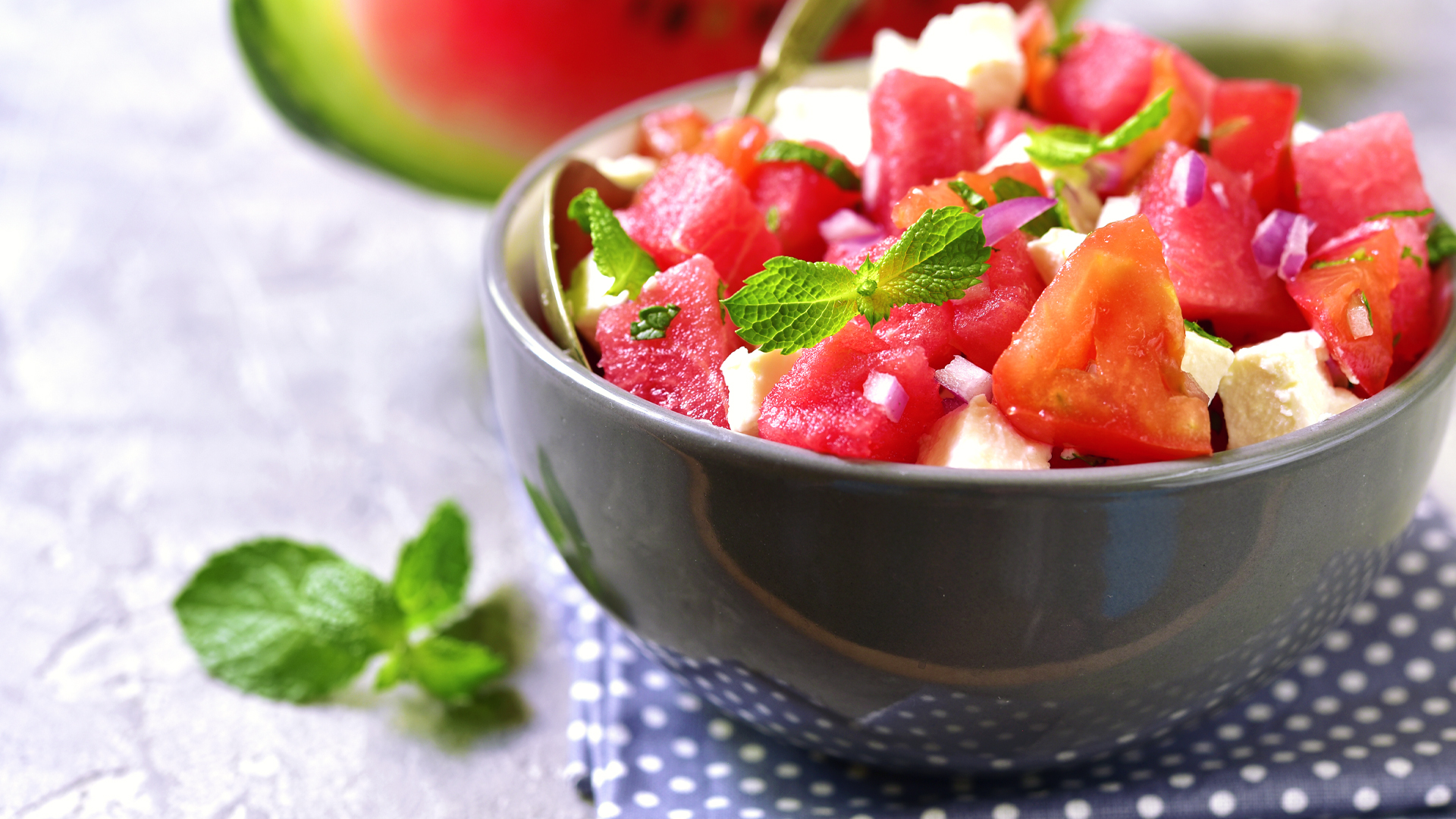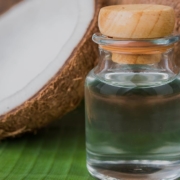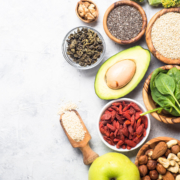Clearing Up Diet Confusion for Good
We’ve been dieting for over two thousand years. We’ve tried everything from the Lord Byron-inspired Apple Cider Vinegar Diet and Stanley Burroughs’ Master Cleanse to drinking meat smoothies and chewing each bite of food a hundred times before swallowing.
We’ve thought about ingesting tapeworms and have eaten cotton balls. We’ve tried the Seven Day Color Diet, the Cabbage Diet, the Grapefruit Diet, and the Hollywood 48 Hour Miracle Diet—all in the name of losing weight as quickly as possible.
What some of us are beginning to realize, though, after trying two or two dozen fad diets is that maintaining a healthy weight doesn’t happen by eating only cabbage soup for a week or doing some cayenne cleanse.
A healthy diet is far more dynamic than that and is part of a bigger picture of a healthy lifestyle. Keep in mind that food plays a paramount role in our overall wellness and that maintaining a healthy diet isn’t just about weight.
A Quick Look at the Big Business of Dieting
The diet and weight loss industry in the United States is worth around $71 billion. Every January, 45 million Americans start a weight loss program. However, according to studies, 95% of all diets fail.
At an only 5% success rate and an over two thousand year history of dieting, something about this whole big-bucks industry just isn’t adding up. One of the biggest issues with fad diets is that no one diet fits all. This is clearly demonstrated in the high failure rate.
The best diet is the one that respects your unique individuality. The best one, for you, is also the one that you can maintain. There are no quick fixes on our personal wellness journey; we need to stop buying into those promises. Optimizing your health and maintaining a healthy weight for your specific body is about consistency and consciousness.
With so many different types of diets out there, it can be difficult to decipher which one is ideal for you. Factors to consider include your activity level, your metabolism rate, your specific health needs, and of course, your personal preferences. Today, some of the most popular diets include Keto, Paleo, Vegan, flexitarian, eating for your blood type, Ayurvedic, and Macrobiotic.
7 Popular Diets
While one of these particular diets might prove to be perfect for you, it should also be noted that you don’t necessarily have to adhere to a named diet. Through careful experimentation and listening to your body, you might find that you will develop a way of eating that is completely unique and personalized to you. Each of the following seven diets can be followed entirely or used as a general guide to help you start and maintain healthy eating habits.
Keto Diet
The Keto Diet is a widely popular and effective fat-burning diet that works by cutting down carbohydrate intake to about 20 grams a day (the FDA recommends 300 grams per day for a 2,000 calorie/day diet) and increasing healthy fat consumption. The diet is about 70 to 80% fat, and the rest is mainly protein. This high-fat diet induces ketosis, which breaks down both dietary and stored fat into ketones. When your body is in this state it burns fat instead of carbs for energy.
Keto-friendly foods include spinach, kale, broccoli, cauliflower, cucumbers, avocados, olive oil, coconut oil, mayonnaise, ghee, nut butter, eggs, whole-fat dairy, organic and free-range chicken thighs, and sustainably caught fatty fish such as trout.
Paleo Diet
The Paleolithic Diet, also called the Caveman Diet, is based on eating only what was available before the Neolithic Revolution. The idea is that by eliminating modern-era foods, you can also avoid or better manage “disease of civilization,” such as type 2 diabetes and heart disease.
A valuable takeaway from this diet is to eliminate highly processed, artificially sweetened, and trans-fat and high fructose corn syrup-rich foods once and for all!
Paleo-friendly foods include free-range chicken and eggs, nuts, seeds, tubers, all fruits, all vegetables, healthy fat oils (olive, coconut, avocado), turkey, and shellfish. On this diet, you do not eat dairy or grains.
Vegan Diet
Going vegan is a lifestyle decision that is beneficial to your health and the health of our planet. This diet restricts all animal products, which means no meat, no seafood, no dairy, no eggs. There is a bit of a learning curve with this diet since exclusively eating pasta and salads can be not only boring but not very nutrient-dynamic.
However, once you’ve become an educated vegan (i.e., learning how to make a variety of nutrient-dense plant-based meals) and have fully made the switch, you may find in time that you don’t miss eating meat and animal products.
It is a common misconception that protein only comes from animal sources. There are actually far more protein-rich plant-based foods than animal sources. This includes but is not limited to lentils, chickpeas, beans, sprouted grains, nuts, seeds, and quinoa. Nutritional yeast, hemp seeds, flaxseeds, and chia seeds are also excellent sneaky protein sources that can be added to nearly any dish.
Today, there are so many plant-based alternatives to everything from cheese and milk to meat and eggs. You will also find no shortage of vegan blogs, books, and inspiring resources to help becoming vegan easy, healthy, and tasty.
Flexitarian Diet
The Flexitarian diet is a predominantly plant-based diet that is flexible, as the name implies. This means that while most of your meals are vegetarian, there is a bit of wiggle room to occasionally have non-vegetarian food items, such as locally caught fish or free-range turkey.
The Flexitarian diet is very family-friendly and easy-to-follow. It is one of the top diets because of its flexibility. This diet includes tons of fruits, veggies, grains, legumes, nuts, and seeds, and a limited amount of animal protein.
Eating for Your Blood Type Diet
The Blood Type diet was developed by naturopathic physician Peter D’Adamo who theorizes that the way you respond to food depends on your blood type. Dr. D’Adamo claims that eating this way will “lead you back to the essential truths that live in every cell of your body and link you to your historical, evolutionary ancestry.”
By eating for your blood type, it is believed that you will be able to digest food with greater efficiency, lose weight more easily, and enhance your overall wellness. There are four blood type categories, A, B, AB, and O. Regardless of your blood type, there is an emphasis on eating whole foods and limiting processed foods.
Based on this theory, those with type A blood are better suited to a totally vegetarian diet. Type B individuals should eat mainly green vegetables, eggs, low-fat dairy, and lean meat but avoid chicken and type AB should focus on seafood, dairy, green vegetables, and should avoid cured meat. Those with type O should go light on grains, beans, and dairy and high on lean meat, poultry, fish, and vegetables.
Ayurvedic Diet
The Ayurvedic diet is based on the principles of Ayurvedic medicine. Similar to the blood type diet, with this diet you eat based on your dosha or, mind/body state. There are three doshas, Pitta, Vata, and Kapha. All three doshas are present in everyone, but each of us has a dominant one. When our doshas are balanced, we are healthy. When they are unbalanced, disease can manifest.
Simply put, dominant Vatas tend to be thin and light framed, Pittas often have a medium build, and Kaphas are strong and on the heavier side. However, there are so many different characteristics of each dosha beyond body frame. Vatas should eat warm and nourishing foods and avoid raw and cold foods. Pittas should eat cool or warm foods and focus on bitter, sweet, and astringent flavors. Kaphas do best with lightly cooked, raw, and spicy foods.
Macrobiotic Diet
The Macrobiotic diet is focused on eating only locally produced, organic, natural, chemical-free food to support a balanced and healthy lifestyle. The diet is predominantly vegetarian, with about 50% of your daily food intake being whole grains like wild rice, buckwheat, and quinoa.
Caffeine, alcohol, processed food, anything with artificial ingredients, sugar, vanilla, tropical fruit, spicy seasoning, and garlic are completely eliminated.
Aside from eating a very clean diet, the process of cooking and eating is important. Both are meant to be mindful and tranquil experiences. This diet also comes with some lifestyle recommendations, such as eating and drinking only when hungry or thirsty, avoiding microwave ovens, and purifying water before cooking with it or drinking it.
Beyond Dieting: The Innovative Medicine Diet
The common thread between all of the above diets is that there is a strong focus on eliminating foods that are pumped with preservatives, artificial flavoring, trans fats, and harmful chemicals. Whether you decide to go full vegan or just reduce your animal protein intake, what’s important is that you’re eating high-quality, clean, natural, colorful, earth-made food.
The Innovative Medicine Diet is not so much a diet as it is a guide to natural, whole-food eating. Food can be both preventative and curative when it comes to health. The right food can empower and energize us, heal us, support us, strengthen us, and make us feel great in our unique bodies. Nutrition is about health and should be personalized.
The right food is real food, and the right diet is the one that works best for you.

Disclaimer: The statements made in this article have not been evaluated by the Food and Drug Administration. Any products or treatments mentioned are not intended to diagnose, treat, cure, or prevent any disease. Please consult a licensed medical practitioner for medical advice.
At Innovative Medicine, we believe in transparency. We want you to know that we may participate in affiliate advertising programs pertaining to products mentioned herein.
See how we can help you restore complete health of body, mind & spirit.
Join our mailing list and receive exclusive offers + information!







Leave a Reply
Want to join the discussion?Feel free to contribute!